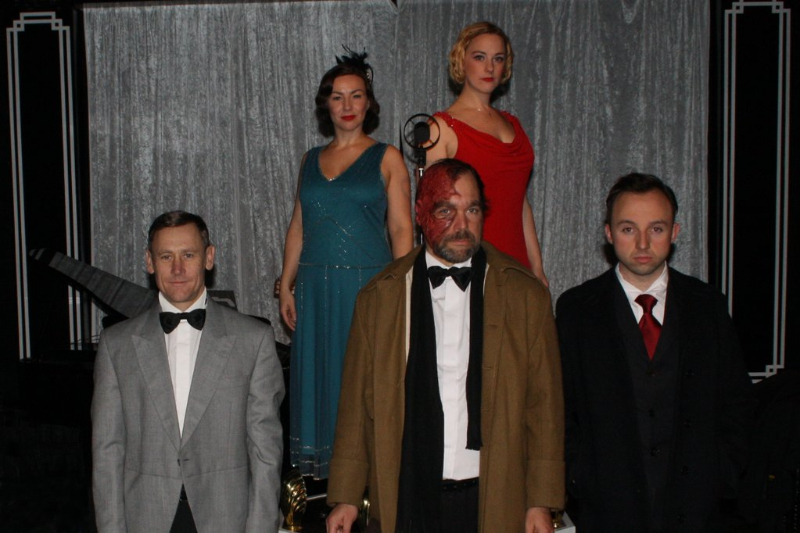Jekyll & Hyde at the Cockpit Theatre

Blue Orange Theatre Company is bringing to the stage Robert Louis Stevenson’s infamous tale of split personality and the repression of evil, but the gothic classic is on this occasion set in a seedy 1930s bar. A live piano and various jazz hits accompany the action. The songs are in no way connected to the narrative, but they provide a pleasant background that contrasts with the dark mood of the tale.
The respectable Dr Henry Jekyll enjoys a flourishing practice and is preparing to wed. His mind, however, is increasingly occupied with the concept that humans are governed simultaneously by good and evil forces, and that it may be possible to neatly separate the two. The more he delves into the subject, the more distracted and detached he becomes. He eventually withdraws from society altogether and, after a period of isolation and erratic behaviour, he alters his will so that all his possessions may go to a mysterious Mr Hyde in the case of his death or disappearance. This elusive character soon becomes more prominent and provokes a whirlwind of violence that greatly distresses Dr Jekyll. It then becomes evident that Mr Hyde’s actions are closely linked to the doctor’s experiments on the subject of controlling good and evil.
The production makes a number of changes to the original story, including the introduction of two prominent female characters. In terms of the themes and main storyline, however, the play remains faithful to the book, which may prove to be a limitation rather than a merit. The dual nature of humans and the notion of good and evil as separate entities are perhaps outdated ideas. This simplification of human nature is long surpassed and, while questions of a multifaceted personality continue to be relevant, the debate has since evolved to such a degree that it seems redundant to reinstate it in its undeveloped form.
The 1930s atmosphere does have its charm but, apart from embellishing the aesthetics, the reason for moving the action to this particular era never becomes clear. It would have perhaps been more interesting to retell the events in light of modern psychological developments, and reimagine Stevenson’s story as it would develop in present-day consciousness. Ultimately, the elements that were updated lack the power to enrich the work. The production is enjoyable, and the cast engages the audience for the most part, but the post-show aftertaste is that there are complex elements in Stevenson’s story providing potential avenues for reinvention, and that these were unexplored.
Mersa Auda
Jekyll & Hyde is on at The Cockpit Theatre from 13th January until 6th February 2016, for further information or to book visit here.























Facebook
Twitter
Instagram
YouTube
RSS